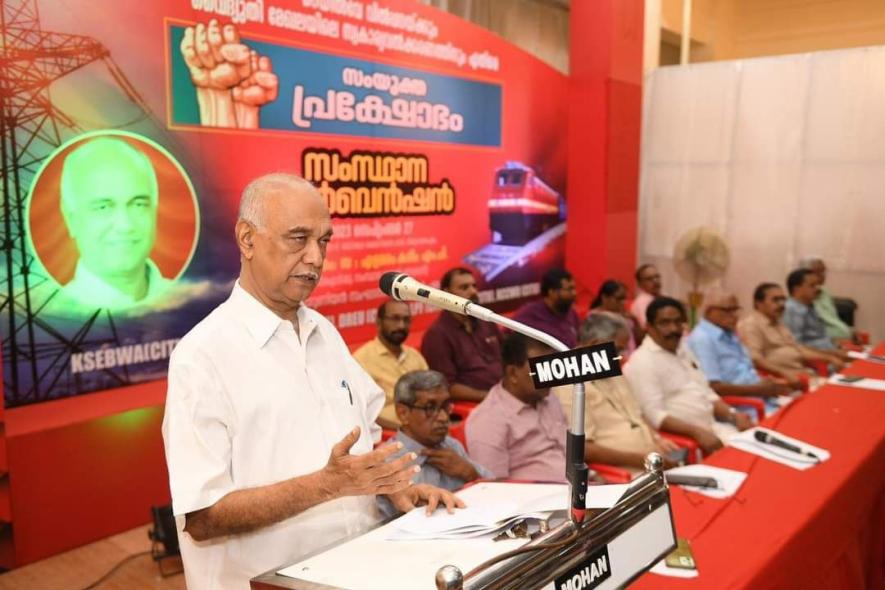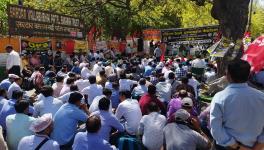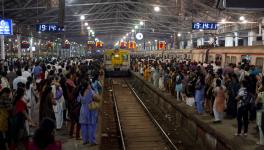Kerala: Railways, Electricity Employees Convention Calls for Campaign Against Privatisation

MP Elamaram Kareem inaugurated the joint state-level convention of the electricity and railway employees' unions and associations.
The joint convention of electricity and railway employees, officers and contract workers, held in Thiruvananthapuram, has resolved to hold extensive programs against the threats of privatisation of the two key public sector organisations. The Union government led by the Bharatiya Janata Party (BJP) has been attempting to bifurcate the two key sectors under the guise of reforms.
While the railways face the threat of being divided into production, regulation and operation, the power sector faces a similar challenge of being trifurcated into generation, transmission and distribution.
Besides organising district-level conventions by the joint action committee of the unions and associations in the two sectors before October 10, mass contact programs, distribution of pamphlets, and gate meetings would be held across districts ahead of the November 3 workers gathering announced by the national convention held in July 2023.
The decision of the Union government and the recommendations of the NITI Aayog, calling for disinvestment in strategic and non-strategic sectors, including manufacturing and service sectors, came under strong criticism during the convention.
The moves to hand over railway tracks, stations, lands, and electricity distribution networks to private companies under the National Monetisation Pipeline (NMP) would directly affect common people relying on the services extended by the railways and state-run electricity boards, the convention noted.
‘PSUs ARE LIFELINE OF THE NATION’
Inaugurating the convention, Rajya Sabha MP Elamaram Kareem, who is also the general secretary of the Kerala state unit of the Centre of Indian Trade Unions (CITU), elaborated on the history of the origin of the public sector organisations in independent India and the role played by the organisations in achieving self-sustainability in several sectors.
“India wanted to ensure that the basic needs of the people were satisfied immediately after independence. Similarly, efforts were taken to achieve self-sufficiency in the industrial sector, leading to the formation of 12 public sector undertakings (PSUs) during the first five-year plan.”
Contrary to the welfare state policy adopted by the earlier Congress party-led governments, the policies shifted to liberalisation, privatisation and globalisation in the 1990s. The policies led to the abolition of permanent jobs, massive contractualisation and outsourcing, leaving the educated youth at the mercy of the corporate players.
“The BJP-led government has intensified the drive for total privatisation under different names. The Central PSUs, including the Indian Railways, worth several lakhs of crores of rupees are handed over to the corporates at dismally low prices,” Kareem said.
From selling minority shares during the first tenure of the BJP-led government during 2014-19, the next five years have witnessed strategic sales across various crucial sectors.
Kareem accused the Narendra Modi-led government of destroying the railways, which own around 7,300 railway stations catering to 2.40 crore passengers/day; it also owns 9,140 goods trains, which carry 1.4 billion metric tons/day.
“Even the CPSUs in the Fortune 500 list of companies are facing the threat of privatisation. The cost of passenger travel and goods transportation would increase, leading to a regressive impact on the common people. The educated youth will also lose employment due to outsourcing and the introduction of the contract labour system,” he said.
The Dakshin Railway Employees Union (DREU) leaders explained the disadvantages of handing railway lands to private players for developing 'world-class facilities'.
N Ravi Kumar, the joint general secretary of DREU, explained how the railways decided to hand over 42 acres of land to a private company for 69 years for carrying out a project worth Rs 290 crore.
"As per the railway estimate, the 42 acres of land in Ernakulam South railway station is worth Rs 2,800 crore. They planned to hand over this land for a project worth 10% of the land value. After sustained opposition, the project is now carried out by the railways itself," he said.
The convention also noted the cost of such world-class facilities and the affordability for a large section of the population to utilise such facilities.
‘POWER SECTOR- AN INDUSTRY OF INDUSTRIES’
The power sector, considered the industry of industries, is also facing a similar threat. After withdrawing the three farm laws, the Union government introduced the Electricity Amendment Bill, 2022, in the Parliament amidst opposition from the political parties and farmers' associations.
Though India has an installed generation capacity of 4,17,668 MW, the highest peak demand so far is 2,39,978 MW on September 1, 2023. With almost double the generation capacity compared to the peak demand, Kareem questioned why private players are roped in to supply electricity at higher prices.
“The Union government is trying to unbundle the state power generation companies to implement privatisation in the sector. Around 26,500 circuit km of distribution lines are under NMP. The impact of privatisation of the power sector in Maharashtra and Uttar Pradesh is already evident,” Kareem, also the president of the Electricity Employees Federation of India (EEFI), added.
The Left Democratic Front (LDF) government in Kerala has decided not to implement the TOTEX model smart metre and adopted an alternate model, seen as a measure to grant relief to the consumers. The sustained struggles by the employees have put a brake on the privatisation ambitions of the union government, but the threat remains.
Representatives of Dakshin Railway Pensioners Union, All India Loco Running Staff Association, Kerala State Electricity Board Workers Union, Southern Railway Porters Union, Railway Construction and Labour Union, Railway Catering, Contract and General Workers Union participated in the convention.
Get the latest reports & analysis with people's perspective on Protests, movements & deep analytical videos, discussions of the current affairs in your Telegram app. Subscribe to NewsClick's Telegram channel & get Real-Time updates on stories, as they get published on our website.
























